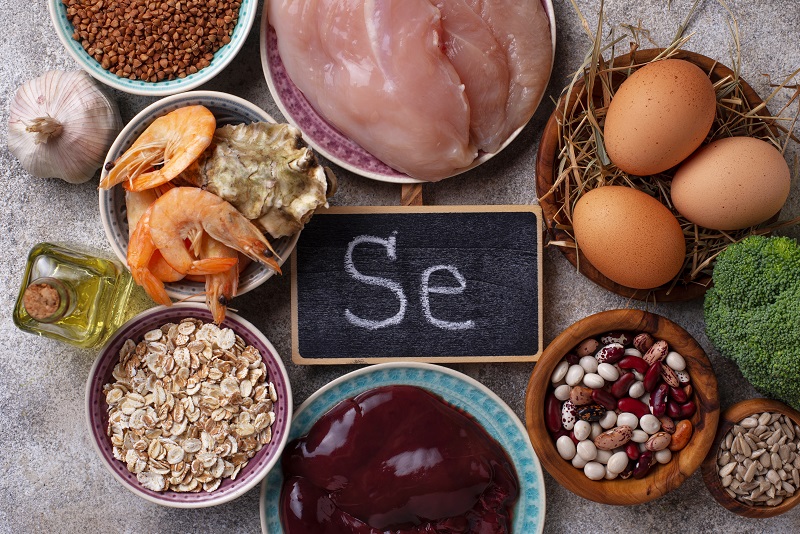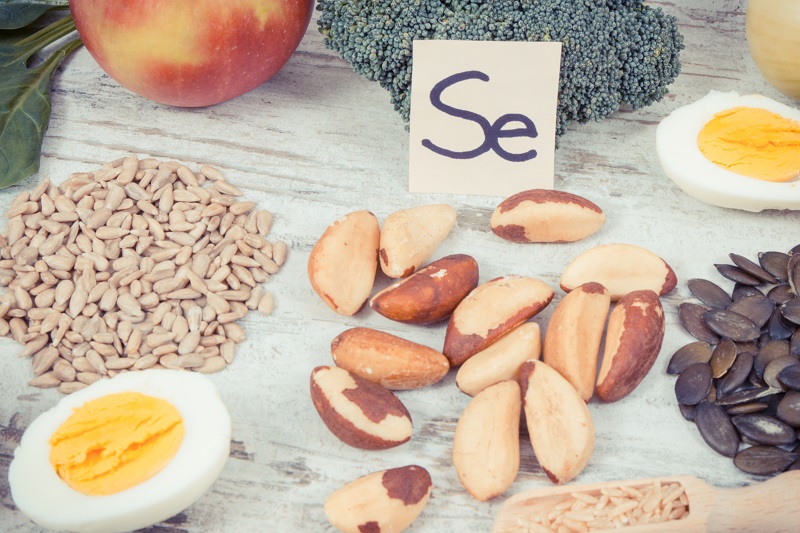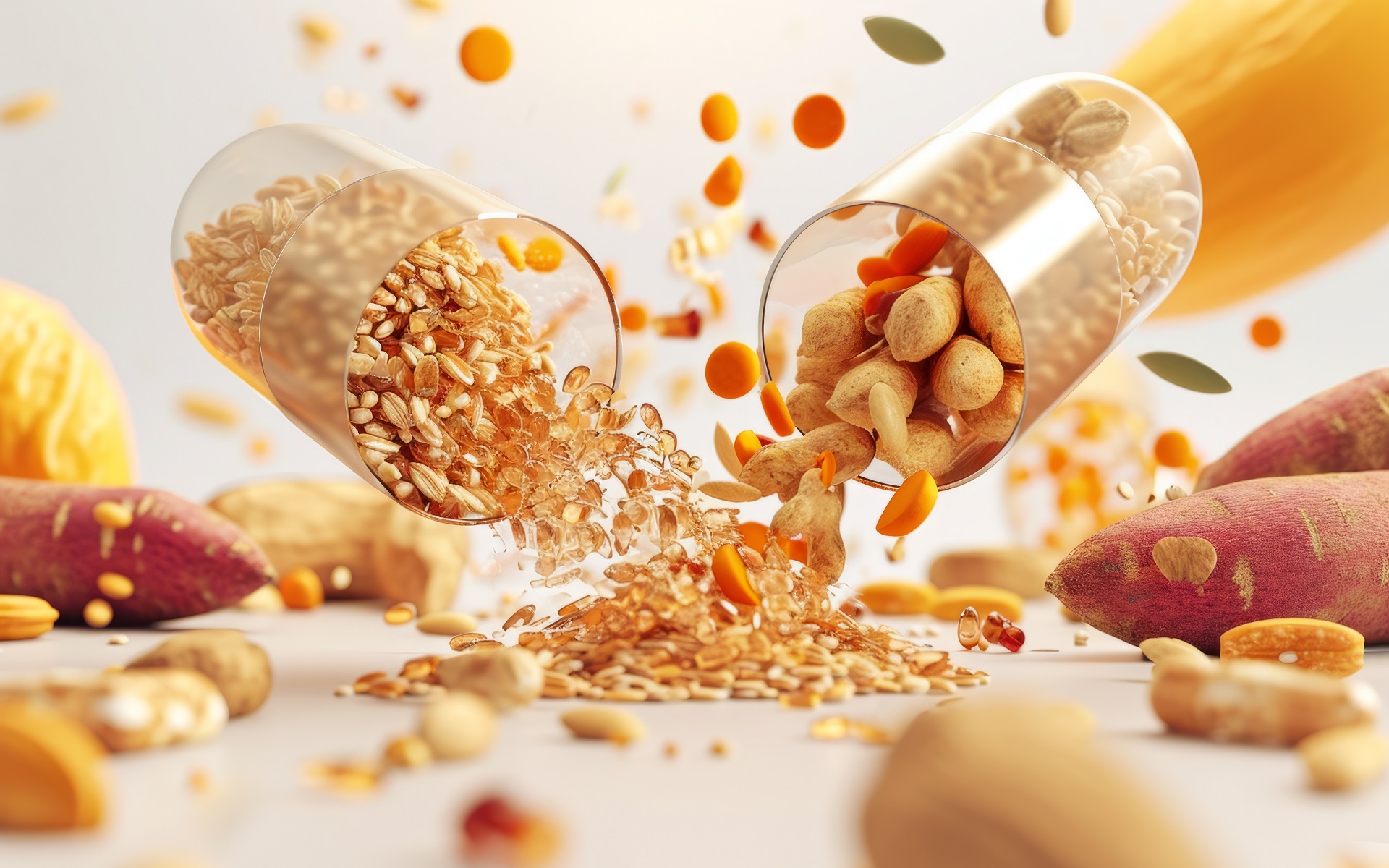Selenium belongs to the trace elements, so its daily requirement is expressed in micrograms. It is so unique that both deficiency and excess are harmful and has a narrow range of tolerable blood concentrations, unlike some other minerals. In the body, it has primarily antioxidant and anti-inflammatory properties, and in adequate amounts protects against the development of tumours.
Selenium – sources and distribution
The best sources of selenium are:
- fish
- crustaceans
- offal.
Plant sources include:
- garlic
- onions
- legume
- mushroom
- whole grain cereal products.
Brazil nuts are also believed to be rich in it, but it depends on their origin The content of this mineral in food depends mainly on the amount in the soil. Unfortunately, in Poland these quantities are not satisfactory. The daily requirement of selenium for both men and women is 55 µg. The form with the highest bioavailability is selenomethionine1. In the body, it circulates in the form of selenoproteins, exerting its various actions. Depending on the availability of this element, the organs may have different amounts, somewhat ‘fighting’ for its supply. The liver is responsible for the metabolism and synthesis of selenoproteins, so its good condition is important.

The role of selenium in building up immunity
The concentration of this microelement influences the functioning of the systems: innate and acquired immunity This includes the stimulation and action of T and B cells, the activity of NK cells and the ability of macrophages to attack pathogens. It stimulates the immune system to function and has antiviral properties. Inadequate selenium supply impairs immune function and increases the risk of infection.
One of the selenoproteins is the potent internal antioxidant glutathione peroxidase Selenium’s antioxidant properties protect immune cells from free radical damage. Experiencing an acute infection itself generates inflammation, so antioxidants are invaluable in this case too.
By the fact that this micronutrient is required for the production of thyroid hormones, it will indirectly affect the body’s defence capabilities. The thyroid gland is responsible for many functions in the body, and is the basis for maintaining proper energy metabolism. The immune system also needs adequate energy resources.
Selenium deficiency and immunity
Deficiencies increase inflammation and the secretion of pro-inflammatory cytokines Inflammation can cause lung damage in acute infections, as shown recently by COVID Selenium intake is able to regulate this response, to the benefit of the host – it affects (IL)-1β and IL-6, among others. In general, a deficiency of this micronutrient increases susceptibility to infections and cancers, which are the result of impaired immune function There are reports that selenium and vitamin E supplementation reduces the risk of respiratory tract infections. Sources of free radicals are heavy metals, which also cause immunotoxicity, and their detoxification is aided by selenium selection.

Which selenium to choose?
Different doses can be found in supplements, usually in the range of 200-300 µg per serving. The upper tolerated dose is a value of 400 µg/day. Also, it is good to take breaks in supplementation. As mentioned earlier, selenomethionine, a combination of selenium and an amino acid that is also found in food, is the best absorbed.
Bibliography:
Jarosz M., Rychlik E., Stoś K. i wsp. Normy żywienia dla populacji Polski i ich zastosowanie., PZH, 2020
Filippini T, Fairweather-Tait S, Vinceti M. Selenium and immune function: a systematic review and meta-analysis of experimental human studies. Am J Clin Nutr. 2023 Jan;117(1):93-110.
Wawer I., Kompendium suplementów diety. 2023, Medyk
Avery JC, Hoffmann PR. Selenium, Selenoproteins, and Immunity. Nutrients. 2018 Sep 1;10(9):1203
Shakoor H, Feehan J, Al Dhaheri AS i wsp.: Immune-boosting role of vitamins D, C, E, zinc, selenium and omega-3 fatty acids: Could they help against COVID-19? Maturitas. 2021 Jan;143:1-9.
Zhang F, Li X, Wei Y. Selenium and Selenoproteins in Health. Biomolecules. 2023 May 8;13(5):799

